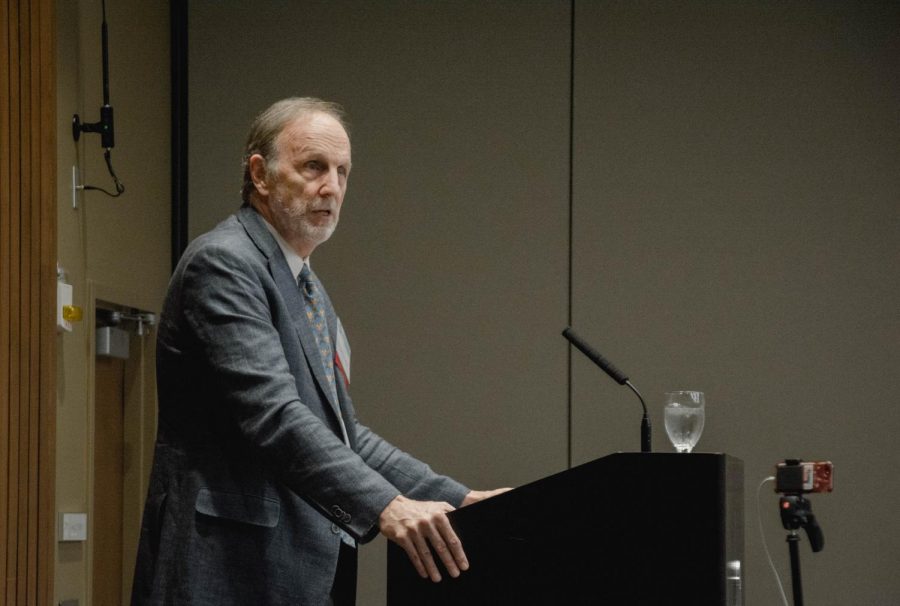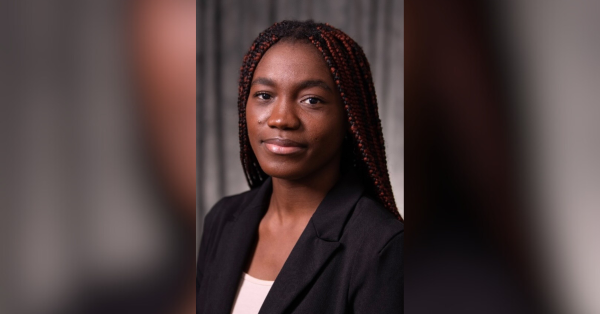World Affairs Council of Central Illinois Brings distinguished China Expert to UIS
As their first event of the Fall, the World Affairs Council of Central Illinois (WACCI) brought Michael Swaine, Ph.D., to the UIS Student Union Ballroom on Monday, Sept. 17, to give a presentation on his views of the current relationship between the People’s Republic of China (PRC) and the United States (US).
Swaine, a senior fellow at the Carnegie Endowment for International Peace and former senior analyst at the RAND Corporation, is a widely renowned expert in Chinese defense and foreign policy, as well as US-China relations, and has written and edited several books on the topic. These includeAmerica’s Challenge: Engaging a Rising China in the Twenty-First Century, in which he discusses several points similar to those he outlined in his presentation.
In his presentation, Swaine discussed several of the core issues of the US-China relationship. These included China’s expansion efforts into the South China Sea, the perpetual difficulties and modern developments surrounding the problem of Taiwan, the issues surrounding China’s perceived support for the pursuit of nuclear weapons by the Kim Jong Un regime in the Democratic Republic of Korea, more commonly known as North Korea, the rise of China as an economic power over the past few decades, the strain placed upon the relationship between the two powers by the recent economic disputes that have been referred to by many as a trade war, and the underlying assumptions and ideologies of the Trump administration in its dealings with the PRC.
Over the course of his lecture, Swaine stressed the importance of shifting the defense strategy of the US in regards to the maritime disputes with the PRC to one of what he referred to as “Denial.” Specifically, this would mean adopting a more defensive stance in the region with an intent to contain Chinese ambitions and without posing a direct threat to the PRC itself.
This would occur as part of a multilateral approach that would include the strengthening of the alliance between the US and Japan. In connection to this, Swaine also discussed the paradigm shift that comes with the potential infeasibility of the status quo regarding the Taiwanese situation due to the PRC’s increasing development as a military power. Swaine also discussed the damaging effects of the Trump administration’s underlying assumptions that cooperation with China had always led to Chinese benefit, to the detriment of US interests.
While he acknowledged that claims of Chinese economic espionage and bad-faith trade practices were not baseless, and that the PRC bore its fair share of the blame, Swaine was also highly critical of the current policies of the US regarding China, stating that it was his belief that a shift to more moderate and pragmatic leadership was necessary, or that it could potentially take a crisis to force positive change into the US-China dynamic.
Summarizing his main points, Swaine said, “The point I want to convey is that this relationship is in trouble; we have a negative dynamic that’s operating this relationship that could lead us into very deep waters and an adversarial relationship that neither side will win, neither side will be able to benefit from, that’s probably my number one message.
The second one is that, don’t assume it’s going to lead to war, don’t assume that it’s going to lead to the worst case; we can manage this situation, but we certainly need to have more enlightened leadership than we have now, in the United States and in China.”
The next WACCI event will be on Oct. 16, and it will be covering the British exit from the European Union, commonly known as Brexit












